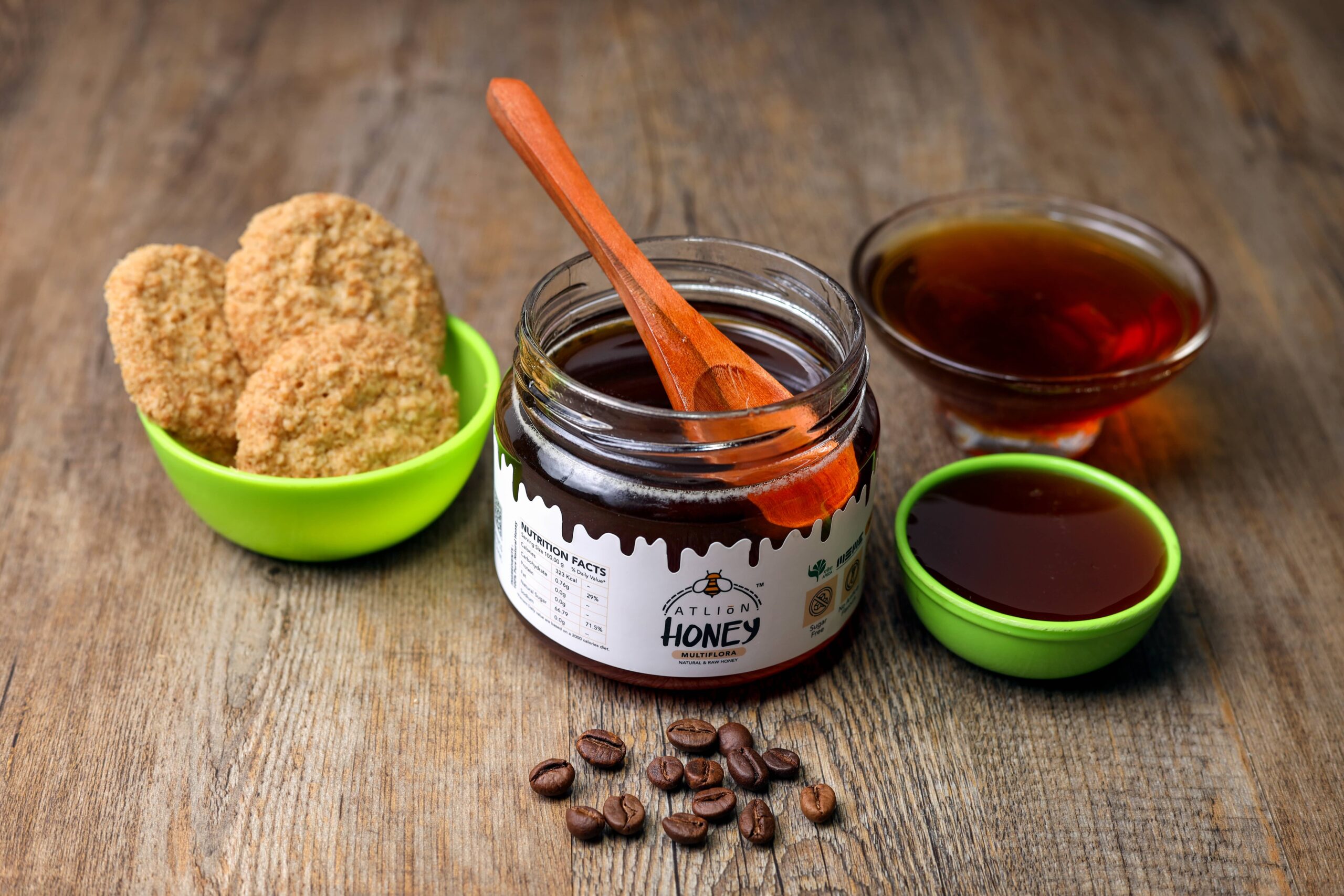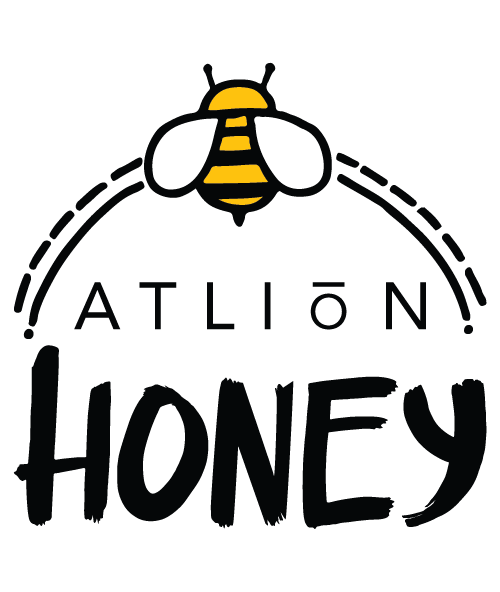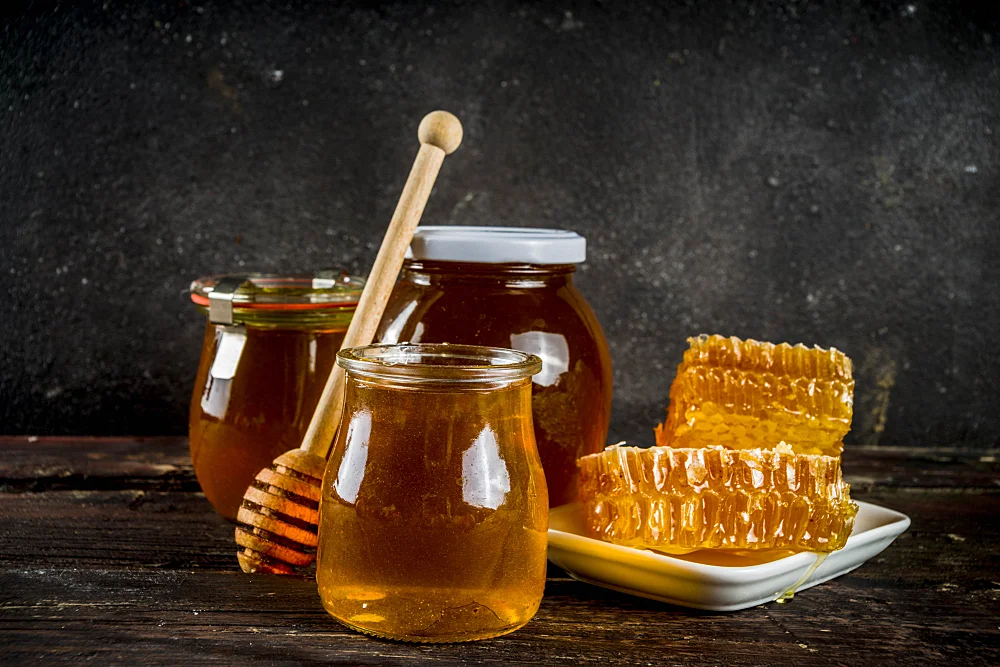Get Special Discount on Every Honey Jar
No Coupon Required. Limited stock available!
APEDA Certified Organic Honey
This is not for only marketing or advertisement purposes. Every individual consumer can cross-verify lab reports and certificates for their received honey jar.

- Bestsellers
- Featured
- Special
- Free delivery
- Non-contact shipping
- Money-back guarantee
- Secure payments
ATLION
Organic Honey
providing 100% pure honey which can be used for ayurvedic treatment, food supplements and to boost your energy. We sell only what we harvest. Honey is harvested from our honeybee hives without hurting or damaging any honeybee.
Express yourself with #atlionhoney
on instagram
FAQ
Most frequent questions and answers
Atlion Honey is 100% pure and certified natural honey, With absolutely zero adulteration and minimal processing. Atlion Honey is organic and free from any form of chemical additives like preservatives, antibiotics, aroma, and external colors. Hence it is good for medicinal use as it is medically graded honey.
Raw Honey simply means honey as present in the honeycomb collected by honeybees. It has many essential micronutrients, including beneficial enzymes and bee pollen.
Atlion Honey is just about ‘RAW’ because it is utterly unheated, unprocessed, and unfiltered. Also, bee pollen and all other essential nutrients like vitamins, minerals & live natural enzymes are intact.
Yes, Atlion Honey is 100% Pure, Unprocessed, Natural & Organic Honey. For surety of purity, it is FSSAI and APEDA Certified.
It is a proven fact that natural honey doesn’t expire if it’s stored properly. It is always recommendable to store natural honey in a cool and dry place. it should be stored in a glass or stainless steel container for a longer shelf life.
Honey ageing is measured by the evaluation of HMF (hydroxymethylfurfural) content in honey.
As a matter of fact, Atlion Honey doesn’t have an expiry date.
However, we find “Best before” date mentioned on all honey labels, only meant to follow the label rules of food regulations.
Pure and natural honey only darkens with age, and this darkening process fastens with an increase in temperature.
The darkening of natural honey is also a possible result of Millard’s reaction. This reaction mainly takes place between the amino acids and monosaccharides present in honey.
In spite of darkening, honey will be edible for thousands of years. Honey found in the Egyptian pyramid was edible even after 3000 long years.
In earlier days people used to gather honey directly from beehives. All the benefits attributed to honey are because of its bioactive compounds like antioxidants, enzymes, bee pollen, and micronutrients like vitamins and minerals.
Nowadays, when commercial interest took over. They process honey extensively to make it more appealing and smooth, Compromising its nutritional and medicinal value.
Processing of honey includes heating, filtration, and moisture reduction. It is a common practice in most of the commercial honey.
During the commercial production of honey, it is common that unripe honey extracted , which typically contains a high moisture level of around 20-25%. However, this excess moisture can cause fermentation in the honey.
Honey is heated to reduce yeast and the moisture content. The high heat used during this process also enables ultrafiltration to be performed, which gives the honey a shiny and smooth appearance and slowing down the crystallization process.
The heating process is also used to blend in adulterants with the honey. This can be done by introducing the adulterants during the heating process.
With years of experience, we have developed a method to produce honey without the need for excessive processing. Honey’s high quality is achieved through nature’s “BEEHIVE” factory, and when harvested at the appropriate time, requires minimal processing.
Ripe honey naturally contains less moisture and does not require heating or pasteurization. However, visible particles such as dust, pollen chunks, leaves, beeswax, and debris may still be present. Our approach involves a separation process at the source to remove these particles.
First, the honey is left to stand in a container for a day before being removed via a tap. The upper layer, which may contain organic impurities like leaves, pollen chunks, and bee debris, is discarded. Meanwhile, heavier impurities like dust and sand settle at the bottom.
This straightforward process ensures that the honey is clean at the source. Once collected, it is transported to our clean facility where it is gently warmed and strained to remove any remaining visible impurities.
It is important to note that throughout our entire process, the honey is never exposed to temperatures above 45°C.
PURITY OF HONEY
At Atlion Honey, we pride ourselves on providing 100% pure, natural, and unprocessed honey without any chemical additives, preservatives, antibiotics, external color, or aroma. In contrast, commercial honey is often adulterated with synthetic honey, such as rice syrup, invert sugars, or high-fructose corn syrup. Commercial honey is typically processed at high temperatures and filtered to remove bee pollen and other visible impurities. It may also contain anti-granulating chemicals, which can lead to the loss of honey’s valuable properties.
VARIETIES OF HONEY
We offer a variety of natural honey, each with a distinct aroma, color, and taste depending on the flower source. Our honey is authentic, and its variety can be verified through a pollen test under the microscope. In contrast, commercial honey has a uniform taste, color, and aroma, which may be due to heavy processing or adulteration.
HEALTH BENEFITS OF HONEY
Our honey retains all its nutritional and medicinal values intact, supporting good health, enhancing immunity, and aiding the absorption of nutrients and minerals from other foods. We recommend starting your day with warm water and Atlion honey. In contrast, commercial honey usually has no health benefits due to its adulterated contents. Honey adulterants like rice syrup and HFCS are often linked to health ailments such as obesity, cardiac problems, and diabetes.
CRYSTALLISATION OF HONEY
Our honey tends to crystallize and form white granules, especially in cold temperatures, which is a natural process. We believe in creating awareness about crystallization rather than using heavy processing and adding chemicals to prevent it. In contrast, most commercial honey is heavily processed and adulterated with rice syrup, which doesn’t granulate or crystallize, even if refrigerated.
Many commercial honey brands sell their products at low or discounted prices due to the use of adulteration practices. Adulteration is often considered necessary for the following reasons:
- Natural honey is known to vary in taste, aroma, and color depending on the type of flowers from which it is sourced. This makes it difficult for commercial brands to produce a uniform product in large quantities.
- Natural honey typically undergoes crystallization due to the presence of glucose and fructose, which may not be desirable for commercial brands. Adulterants like rice syrup, however, do not crystallize.
- Commercial brands require large quantities of honey at a constant low price, which is not always feasible due to the scattered production of natural honey.
In India, there are five types of honeybees, which are:
Apis Dorsata (size: 3 cm) – Also known as Rock Bee Honey, these bees make hives in open areas and cannot be domesticated. Tribal people usually harvest their honey, with each hive containing around 10 to 15 kgs of honey.
Apis Florea (size: 7mm) – This type of honeybee makes hives on trees and, like Apis Dorsata, mostly lives in open areas and cannot be domesticated. Each hive of Apis Florea can provide about 0.2 to 1 kilograms of pure, natural honey.
Apis Cerena Indica (size: 9mm) – A native Indian bee that makes its hives in close spaces in the form of multiple plates. Unlike Apis Dorsata and Apis Florea, this honeybee can be easily domesticated. You can extract as much as 2 to 5 kgs of honey from its colony during the flowering season.
Apis Mellifera (size: 1.5 cm) – This type of honeybee is mainly used for the commercial production of honey. Beekeepers migrate them to flower-rich areas for the collection of nectar and extraction of honey. Each colony of Apis Mellifera can give about 5 to 10 kilograms of honey.
Apis Trigona (size: 5 mm) – Also known as the stingless bee, Apis Trigona is the smallest bee that makes small pot-like hives for collecting honey. The honey collected by this honeybee is sour, and therefore, there is no harvest of this honey for human consumption.
Atlion multiflora Honey is mainly harvested from the hives of Apis Mellifera and Apis Dorsata.
Absolutely! Atlion multiflora honey is best for creating medicinal herbal remedies. Atlion Multiflora Honey has been highly recommended by herbalists as the perfect honey for herbal medicine preparation.
It is recommended to store honey in a glass jar or stainless steel container to preserve its quality. The container should be airtight to prevent moisture from getting inside, which can cause fermentation if the relative humidity is above 48%. It is best to keep honey in a cool and dry place, But should not be refrigerated as it can cause crystallization.
As Atlion Multiflora Honey is raw and unprocessed, it has a tendency to crystallize or granulate over time, particularly in colder temperatures or when stored in the refrigerator. However, it can be easily liquefied again by placing the crystallized honey in hot water for a few hours.
This question is better addressed by a doctor. While honey is better than sugar, we are not medical practitioners and therefore cannot advise it as suitable for diabetics. Please consult your doctor for the above.
Honey is a natural antimicrobial substance, which means that pure honey will not allow the growth of harmful microbes, making it safe to consume forever.
However, customers often ask why there is an expiry date on honey jars.
The answer is that Atlion Multiflora Honey does not have an expiry date, but instead has a “best before” date. This date indicates that the honey can be consumed even after the date listed, but its properties, such as color, aroma, and texture, may change over time.
These changes do not make the honey unsafe, but rather indicate that it is pure and unprocessed.
In fact, if your honey stays the same for months without any changes, it may be synthetic honey that has undergone heavy processing.
As per Indian and international food laws, it is mandatory to mention a “best before” or expiry date on the label of all packaged foods, including honey.
So, when you purchase Atlion Multiflora Honey, you can be assured of its purity. Enjoy your jar of honey without worry, knowing that it is guaranteed to be pure and unadulterated.












